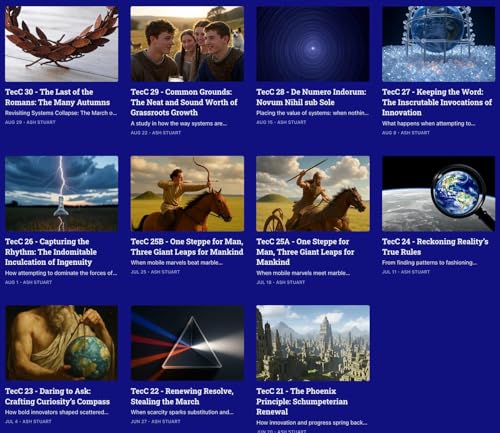In Episode 24, Reckoning Reality's True Rules, I reiterated a claim that mathematics was the queen of the sciences. I went so far as to proclaim:
Mathematics, at its most fundamental level, is a tool that not only allows us to represent reality, but with its sheer predictive power, offers us the best available means to find solutions.
I'll now show you why. With real-world examples and in a way that even the most ardent math-hater will make sense of it. Well, especially someone who has feared the subject so far. Give me a chance to demonstrate its beauty.
Let's first check out...
Click here to read the full article including supplements.
Article written by Ash Stuart
Images and voice narration generated by AI
Further Reading & Reference
* Dalrymple, William. (2024). The Golden Road. How Ancient India transformed the world. Bloomsbury Publishing. ISBN 978-1408864418.
* Mason, Burton, Stacey. (2010). Thinking Mathematically. Pearson Education Ltd. ISBN 978-0273728917.
* Boyer, Merzbach. (1989). A History of Mathematics. John Wiley & Sons. ISBN 047154397-7. (Foreword by Isaac Asimov.)
* Devlin, Keith. (2012). Introduction to Mathematical Thinking. ISBN 978-0615653631.
* Parrish, Shane. (2024). The Great Mental Models. Vol 3 (Systems and Mathematics). Penguin Random House LLC. ISBN 978-0593719992.
* Al-Khalilil, Jim. (2010). The House of Wisdom. Penguin Press. ISBN : 978-1101476239
This is a public episode. If you would like to discuss this with other subscribers or get access to bonus episodes, visit ashstuart.substack.com
 22 分
22 分 2025/10/2416 分
2025/10/2416 分 21 分
21 分 16 分
16 分 20 分
20 分 24 分
24 分 12 分
12 分 22 分
22 分
